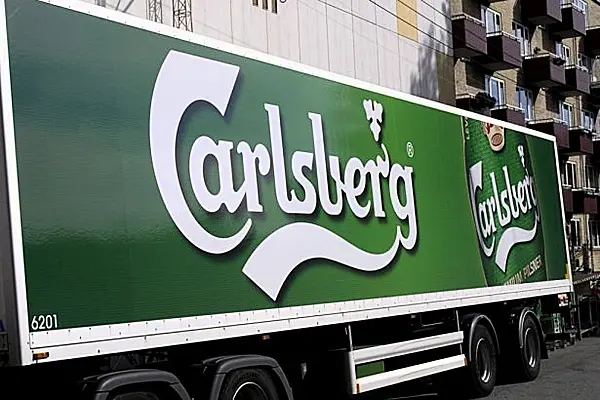Empty Chinese streets and karaoke bars will reportedly hit short-term sales in Carlsberg's biggest market, but the Danish brewer said that it is not changing its forecast or strategy for China as a result of the coronavirus outbreak.
Carlsberg's sales in China grew by 19% last year, far outpacing a slightly declining underlying market with total volumes contracting by 2%, the brewer said.
So-called on trade business, such as sales in karaoke bars and restaurants, in China has been "significantly" impacted by closures due to the coronavirus outbreak, which has killed more than 420 people and infected more than 20,000, Carlsberg CEO Cees 't Hart said.
"Short term we might have a bit of an issue or at least an impact on the business, but longer term we don't see any issue," Hart said during a media conference call.
Carlsberg said in a statement that it expects to deliver mid-single-digit organic operating profit growth in 2020, after reporting a 10.5% increase in 2019.
"We will not change our outlook on China, nor our current programme," Hart added, referring to the firm's Big Cities strategy of expanding its presence in China's major cities.
Carlsberg has entered 35 Chinese cities since 2017 and will move towards 40 by the end of 2020, Hart said.
"Carlsberg has in Big Cities found a strategy, which works, and they have not taken a wrong step in Asia in the last couple of years," Jyske Bank analyst Henrik Hallengreen Laustsen said in a note.
Positive Price Mix
Carlsberg's full-year sales grew organically by 3.2% to 65.9 billion Danish crowns ($9.76 billion), just below the 66.1 billion expected by analysts in a poll compiled by Carlsberg.
Its price/mix, which indicates whether the company sold more of its expensive beer, was 3% for the full year of 2019 and positive in all of its market regions.
Sales in Asia grew organically by 12.3%, with a price/mix of 6% mainly driven by China, where it sold more expensive beers.
The brewer said that its Eastern Europe business saw tough competition, with total volume down 5.2% and operating profit off almost 18%.
This was also due to comparison with a strong 2018, when warm weather and the World Cup boosted sales, as well as a flailing Russian market, where Carlsberg lost market share.
"Rivals make it hard for Carlsberg to regain lost market share. The challenges are expected to continue into 2020," Laustsen said.
Carlsberg said that it will propose increasing its dividend by 17% to 21 crowns per share and initiate a share buy-back programme worth five billion crowns in the next 12 months.
News by Reuters, edited by Hospitality Ireland. Click subscribe to sign up for the Hospitality Ireland print edition.









